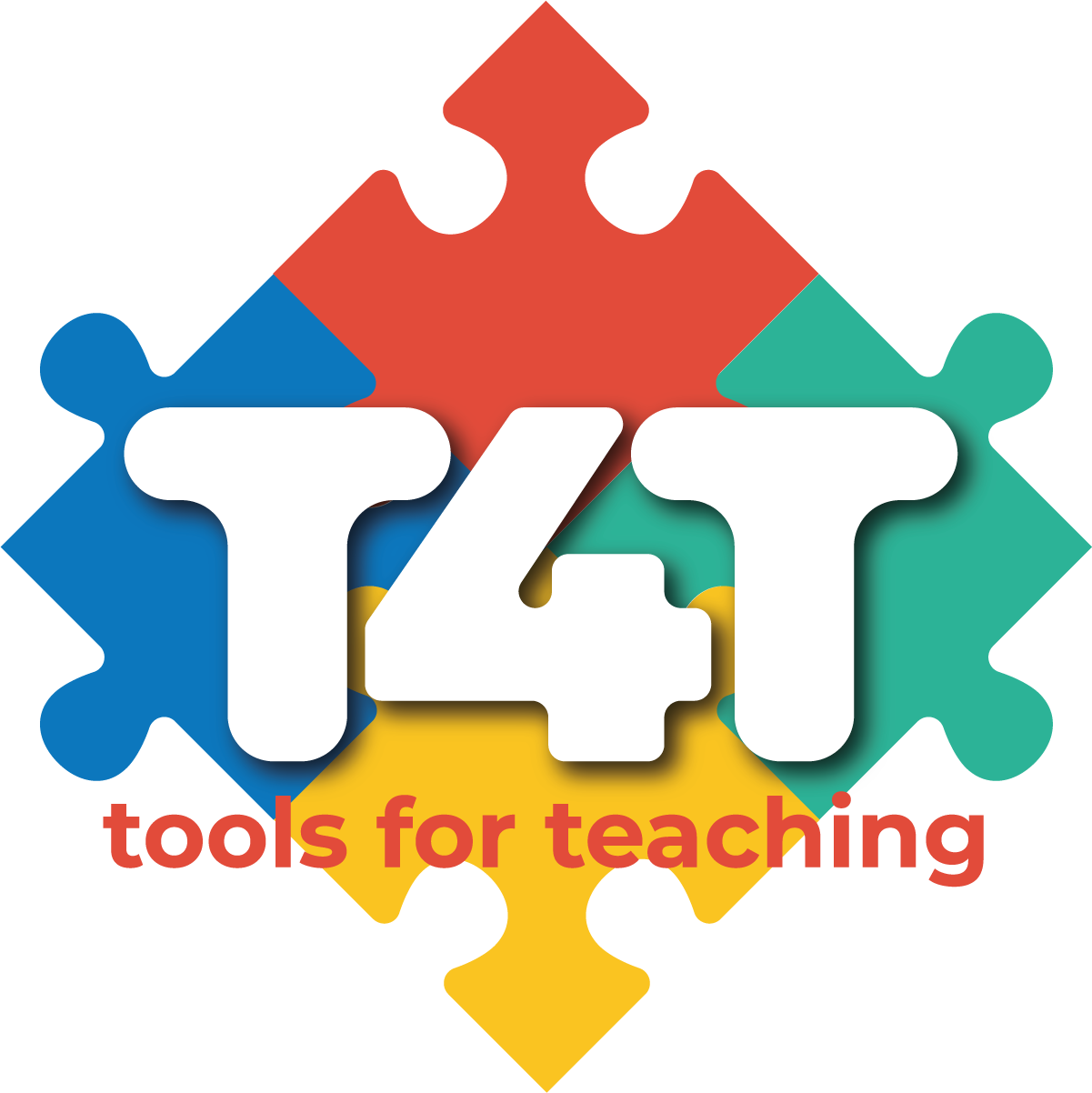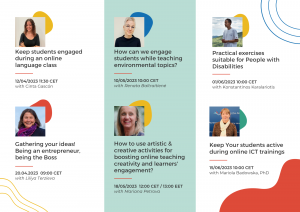On 27 October, the T4T project event in Spain brought together teachers, students and various stakeholders from local and international educational institutions. The event, which took place at Espai Boule on the DomSpain premises and was streamed online, aimed to familiarise participants with the T4T project, its objectives, results and the partnerships it has fostered. It also provided an excellent opportunity for networking and potential future collaborations.
The event started at 10:00 am with registration and a warm welcome to the participants. This was followed by a general presentation of the T4T project with an overview of its objectives and activities. After that, Professor Vicent Villena gave an insightful presentation on “Classrooms for the Future”, which captivated the audience. This was followed by an interactive workshop entitled “T4T – How to master effective online group dynamics”, in which participants were able to put the results of the project into practise. The workshop was very well received and demonstrated techniques for improving group dynamics in online settings.
After a Q&A session, there was a coffee and refreshment break where participants were able to have informal conversations and socialise. Later, there was a discussion round on the topic of “T4T – Promoting cross-sector collaboration”, during which participants were able to exchange ideas and experiences. The event ended with a summary and a discussion on the next steps for the project.
The event was carefully organised and great efforts were made to reach out to educators and relevant university research groups. The event was promoted via social media such as Facebook, Instagram and LinkedIn to reach a wide audience. The venue, Espai Boule, provided an ideal setting, complemented by coffee and snacks and a dedicated coffee break area. Virtual participation was made possible by a Zoom stream so that those who could not attend in person could also take part.
The event attracted a diverse group of participants, including educators, pedagogues, pedagogical professionals from universities, adult education professionals, trainers of other adult educators and psychologists working in education and instructional technology research groups. Participants provided valuable feedback via a Google form on their reasons for attending and the benefits they gained from the event.

The feedback was overwhelmingly positive. Participants unanimously enjoyed the event, learnt about the key aims and outcomes of the project and improved their knowledge of engaging learners in an online environment. They also appreciated the new practical digital tools and methods that were presented and expressed great interest in the T4T project.
Notable new insights gained by participants included innovative digital tools and teaching methods, student engagement techniques and useful tools for online teaching. Many found the project’s activities and practical exercises particularly interesting and expressed interest about implementing these new approaches in their own educational environment.
There were few suggestions for improvement for the future: Participants called for more practical examples, additional workshops and more time for networking. Some also suggested encouraging more group discussions to strengthen the collaborative aspect of the event.
To summarise, the T4T project event in Spain was a resounding success. With a total of 38 participants attending in person and a further 15 registering online, the event exceeded expectations in terms of attendance and engagement. The dynamic atmosphere allowed for active participation, meaningful discussions and valuable networking opportunities. The positive feedback and genuine interest in the T4T project underlines the effectiveness of the event in fostering innovation and collaboration in the field of online education.







